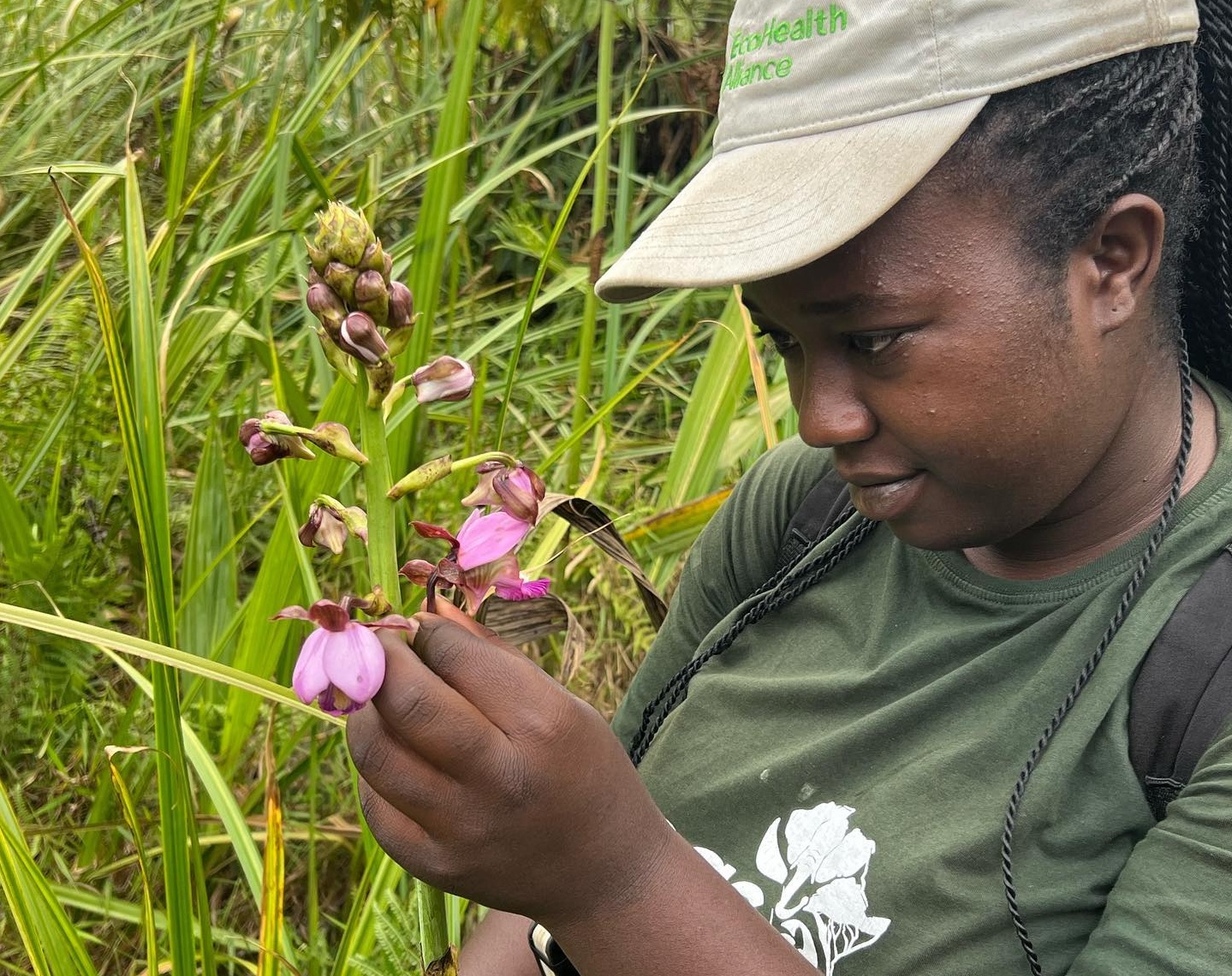Washington – The Global Genome Initiative for Gardens (GGI-Gardens), Botanic Gardens Conservation International (BGCI), BGCI-US, and the United States Botanic Garden (USBG) are pleased to announce five awards to botanic gardens and arboreta in five countries to collect and conserve plant diversity. The GGI-Gardens Awards Program supports activities to preserve Earth’s genomic biodiversity of plants through sampling of living collections maintained at botanic gardens around the world.
The awardees will collect genome-quality plant tissue samples from living plant collections as well as wild populations and preserve them in Global Genome Biodiversity Network (GGBN) biobanks, making them accessible to researchers around the world. Priority was given to awardees that can collect unique families and genera of vascular plants not yet represented in GGBN biorepositories. The supported projects will sample from a wide range of species, including the critically endangered Gigasiphon macrosiphon endemic to Kenya and Tanzania, Aspidosperma polyneuron found in the seasonally dry tropical forests of South America. One awarded project will include the first documented conservation collection of plants endemic to the Andaman Islands, India.
This is the fourth year of the GGI-Gardens Awards Program, which has supported 36 projects by 30 gardens in 21 countries that have collected more than 15,000 voucher specimens.
“The high quality of proposals submitted to this award program continues to impress the entire GGI-Gardens community,” Dr. Morgan Gostel, Director of GGI-Gardens and Research Botanist at the Botanical Research Institute of Texas (BRIT), noted. “These awards and the work they are supporting are a testament to the central role botanic gardens play in conserving and understanding plant genomic diversity worldwide.”
“BGCI views our partnership with GGI-Gardens, BGCI-US, and the United States Botanic Garden as invaluable for facilitating conservation action by botanic gardens around the world,” said Dr. Paul Smith, Secretary General of BGCI. “The work accomplished has filled important gaps in botanical genomic resources available for science and provides critical support for preserving and understanding plant diversity.”
“This international collaboration supports local gardens preserving plants in their collections for conservation and research, ensuring the valuable germplasm they steward is available to science for decades to come,” said Dr. Susan K. Pell, Executive Director of the USBG. “We are proud to continue our collaboration with GGI-Gardens, BGCI-US, and BGCI in support of this important work in the face of habitat loss and climate change.”
Applications were evaluated on institutional capacity, collection scope and genomic novelty, best practices, policies and biodiversity standards, efficiency, and broader conservation impacts.
The five awards, totalling nearly USD $22,000, were made possible by GGI-Gardens, BGCI-US, and the USBG, and are administered through BGCI’s Global Botanic Garden Fund. Award recipients will carry out the collection activities and finalize projects by the end of 2025. More information on the awarded projects will be provided throughout the year ahead.
The recipients of the 2024 Awards Program grants are:
Institution (Alphabetical), Country
Cartagena Botanical Garden, Colombia
Jawaharlal Nehru Tropical Botanic Garden and Research Institute, India
Kirstenbosch National Botanical Garden, South Africa
Mandhari Plants & Designs / Gede Tropical Gardens & Nursery, Kenya
National Herbarium of Rwanda, CoEB, University of Rwanda, Rwanda
For more information on the GGI-Gardens Awards Program visit: https://www.bgci.org/our-work/sharing-knowledge-and-resources/global-botanic-garden-fund/.
-- End –
Images are available at:
https://www.dropbox.com/scl/fo/gzi4sk72er5y8x2lec8c8/h?rlkey=sconxa8coew8zbsj4cigg1ie4&dl=0
Contacts:
Morgan Gostel, GGI-Gardens, mgostel@brit.org
Charlotte Ely, BGCI, Globalbotanicgardenfund@bgci.org
Abby Meyer, BGCI-US, abby.meyer@bgci.org
Devin Dotson, U.S. Botanic Garden, devin.dotson@aoc.gov
About GGI-Gardens
The Global Genome Initiative for Gardens (GGI-Gardens) is a collaborative science-based effort led by the Botanical Research Institute of Texas (BRIT) at the Fort Worth Botanic Garden that aims to collect and preserve the genomic diversity of plants on Earth. GGI-Gardens aims to achieve this mission by building capacity at botanical gardens and arboreta to collect scientific vouchers from living collections and preserving their genome resources in GGBN-partnered biorepositories. GGI-Gardens is generating a vast, accessible, and well-managed collection of genome resources for conservation and research. https://fwbg.org
About Botanic Gardens Conservation International (BGCI) and BGCI-US
BGCI is the world’s largest plant conservation network, comprising more than 850 member botanic gardens in over 100 countries. Established in 1987, BGCI is a registered charity with offices in the UK, US, Singapore, China and Kenya. BGCI's Global Botanic Garden Fund aims to drive plant conservation in botanic gardens with a preference for small botanic gardens in developing countries and biodiversity hotspots. BGCI US is a 501(c)3 organization that shares BGCI’s mission and vision, and connects resources and initiatives in the U.S. and North America with the rest of the world. https://www.bgci.org
About United States Botanic Garden
The United States Botanic Garden (USBG) is the oldest continuously operating public garden in the United States, established by Congress in 1820. The U.S. Botanic Garden inspires people to appreciate, study, and conserve plants to enrich society locally and globally. With over one million visitors annually, the USBG strives to demonstrate and promote sustainable practices. It is a living plant museum accredited by the American Alliance of Museums and Botanic Gardens Conservation International. www.USBG.gov
About GGBN
Formed in 2011, the Global Genome Biodiversity Network is an international network of institutions that share an interest in long-term preservation of genomics samples representing the diversity of non-human life on Earth. GGBN provides a platform for biodiversity repositories from across the world to collaborate, ensure consistent quality standards for genomic collections, improve best practices for preservation and use of such collections, and harmonise the exchange and use of material in accordance with national and international legislation and conventions.
http://www.ggbn.org/ggbn_portal/
